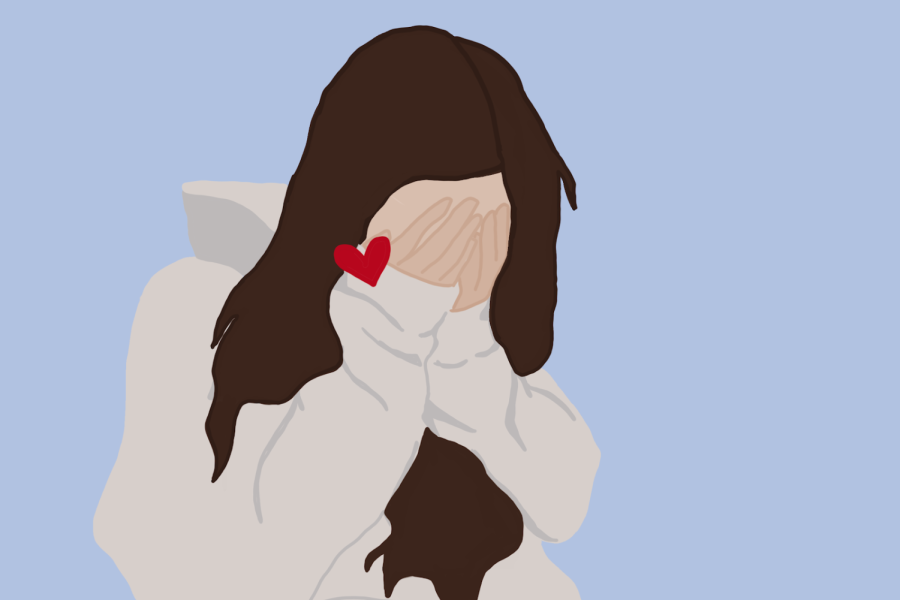Wearing your heart on your sleeve
The power of sensitivity
Being sensitive, or “wearing your heart on your sleeve” is often viewed in a negative light. The Sidekick staff writer Maya Palavali shares the importance of freely expressing your emotions.
April 25, 2022
One fun fact about me is that I am a sucker for romance novels.
Something about finding the love of your life through a whirlwind of events has always been appealing to me. By the end of each story, I’m usually in tears, thinking about the love for days after.
I’ve learned to hide this from the people around me. Instead of letting my tears flow, I instead suppress my sniffles through coughs, refusing to show my emotions to anyone.
I’ve always been a sensitive person. However, as the years go by, there has become a negative connotation associated with the term. By the end of elementary school, I swore to never cry in front of anyone.
That’s the unfortunate reality for everyone.
We’ve been taught that being sensitive is weak and a burden. The term “wearing your heart on your sleeve” is now synonymous with being foolish.
If we express discomfort about anything, we’re told by our peers to “stop acting so sensitive.” Even one instance of expressing your emotions can label anyone as “sensitive,” making people feel as if they have to walk on eggshells around them.
Sensitivity is seen as unhealthy. Crying is only appropriate when a tragic event has occurred; any other time is considered as encouraging negative emotions and is ‘abnormal.’
However, the opposite is true. According to the Harvard Medical School, crying induces endorphins that ease emotional and physical pain. It also eases stress and even helps with healthy attachments with the people around you.
All of these health benefits come from expressing what we already have.
We all have emotions stored inside of us. The difference is the threshold that we hold emotions in us. Whether it be your parents, your friends, your teachers, your school or even yourself, we all process and experience emotions differently.
To show emotion is to admit to being sensitive. There are so many benefits to expressing emotions. It’s your decision to work on understanding how you experience emotions.
If you realize that you aren’t as sensitive as the people around you, that’s completely normal and OK. It’s not your job to feel as deeply as anyone else. However, it is important to educate yourself on how to communicate with more sensitive people. Try to put yourself in their shoes; it’ll improve your relationship so much if you put in the effort to understand them.
If you find out that you’re sensitive and experience emotions more than you’ve seen people around you, there’s no reason to worry. You have to realize that being sensitive is a superpower. — Maya Palavali
It’s our job to confront our perspective on the topic of being sensitive.
Being sensitive doesn’t mean that someone is weak.
Being sensitive doesn’t mean that a person cannot handle hard subjects.
Being sensitive doesn’t mean that they’re prone to crying in every single situation.
Being sensitive doesn’t mean a person is any lesser.
Wear your heart on your sleeve proudly.
Let yourself have emotional attachments to your loved ones, even if it ends in heartbreak. Let yourself express your emotions without feeling self-conscious. Let yourself cry, even if it’s because of a sad dog video you saw on TikTok. Let yourself live your life in color.
So, what do you say? Would you like to join me in a rom-com marathon, complete with tissues and blankets?
Follow Maya Palavali (@mvpalovalley) and @CHSCampusNews on Twitter.












Alex Long • May 3, 2022 at 4:45 pm
I resonated with this article so much! I loved it!
Shrayes Gunna • Apr 25, 2022 at 6:16 pm
Ah!! I absolutely love this column and could not relate more! Great story Maya!!